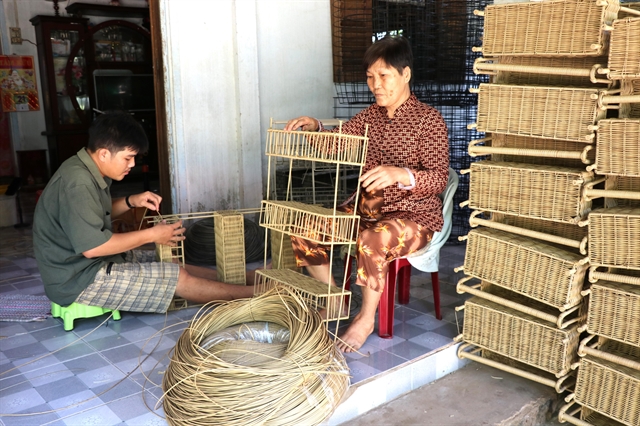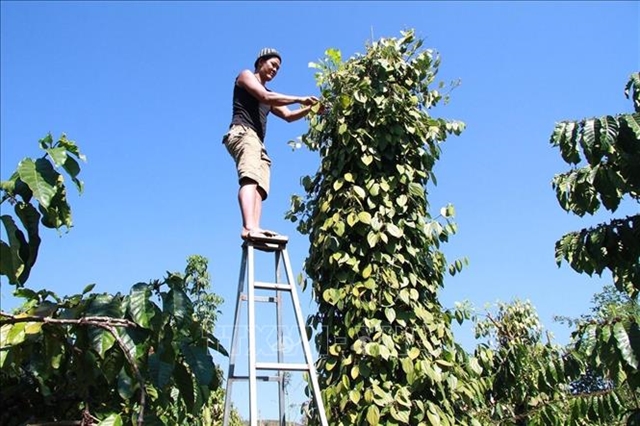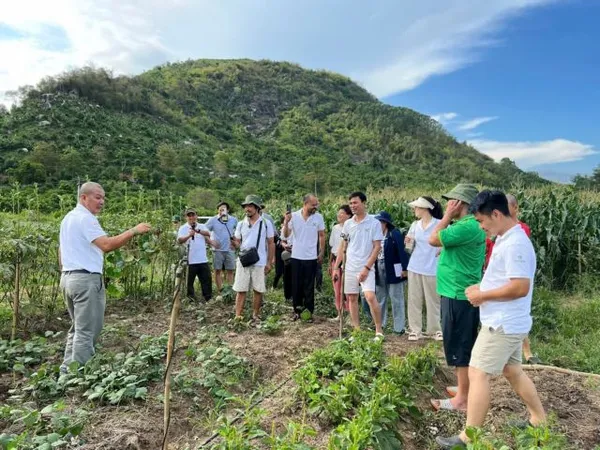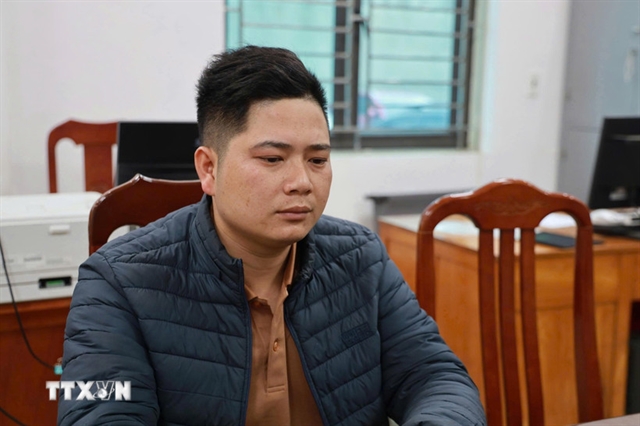 Society
Society

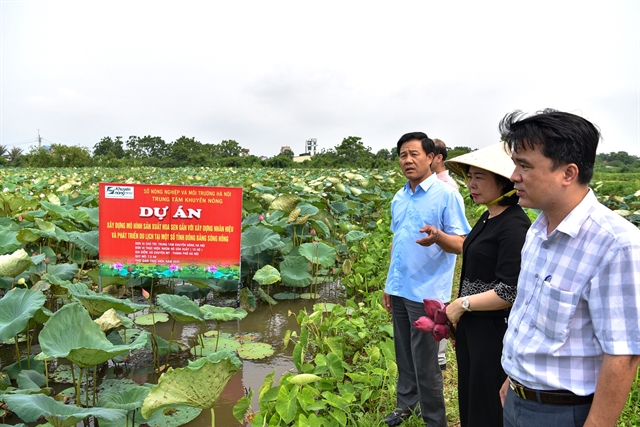 |
| Director of the Hà Nội Department of Agriculture and Environment Nguyễn Xuân Đại (third from right) inspects and evaluates a lotus flower cultivation model in Chuyên Mỹ Commune, which integrates brand development and tourism under the national agricultural extension programme. Photo courtesy of the Hà Nội Department of Agriculture and Environment |
Hà Nội's countryside is seeing new economic opportunities bloom from an ancient flower. In Chuyên Mỹ Commune, the lotus is no longer just a symbol of purity — it is becoming a pillar of ecological agriculture, cultural tourism and sustainable rural development.
Long admired as a graceful flower deeply intertwined with the lives of Northern Vietnamese people, the lotus in Chuyên Mỹ is now being revitalised as a source of livelihood, a certified OCOP (One Commune, One Product) product and a highlight of local eco-tourism. From lotus seeds and roots to lotus tea and natural cosmetics, local residents and authorities are collaborating to enhance both the economic and cultural value of this traditional crop.
In recent years, Chuyên Mỹ Commune has become a shining example of agricultural innovation by restructuring its crop patterns, especially through lotus farming linked to processing, brand-building and tourism. This direction is in line with Hà Nội's policy of developing ecological and organic agriculture as part of its advanced new-style rural development programme.
Lotus cultivation, once focused mainly on seed harvesting, has gradually evolved. Thanks to technical support from Hà Nội’s agricultural sector, many local farmers have shifted toward growing lotus flowers specifically for lotus-scented tea — a specialty product that carries high economic and cultural value.
Since early 2025, 10 local households have been participating in a pilot agricultural extension project that combines lotus flower cultivation with branding and tourism development, covering 7.5ha. This initiative is part of a national extension programme implemented by the Hanoi Agricultural Extension Centre to promote sustainable, high-value and eco-friendly agriculture.
Initial results have been promising. Participating households report significantly higher income from lotus flower production for tea compared to traditional seed harvesting. Fresh lotus flowers sell for between VNĐ25,000 and VNĐ40,000 each, and lotus tea has gained strong commercial appeal both domestically and internationally.
According to Director of the Hanoi Agricultural Extension Centre Nguyễn Thị Kim Quế, lotus cultivation is now being expanded across the city. In addition to the Chuyên Mỹ model, new projects in Mỹ Đức and Phúc Thọ covering 20ha are testing high-yield, climate-resilient lotus varieties such as Bách Diệp, Super Lotus, Quan Âm and Mặt Bằng.
What makes the Chuyên Mỹ model particularly noteworthy is its holistic approach. Farmers and local businesses are fully utilising all parts of the lotus plant: seeds are used for sweet soups and functional foods, leaves are turned into herbal teas and food wrappers, roots feature in gourmet cuisine and lotus stems, stalks and pods are processed into lotus silk — a rare, eco-friendly textile with high commercial value.
As a result, the economic return per hectare has increased, while the lotus plant is now at the centre of a diversified, sustainable and culturally rich rural economy.
Nguyễn Thị Toàn, a lotus grower from Ngọ Hamlet, shared her vision: “Growing lotus flowers for tea production is much more profitable than seed harvesting. My family is committed to this path, and we hope to receive continued support from the city in developing OCOP products, building our brand and reaching international markets.”
Lotus cultivation in Chuyên Mỹ is also closely linked with eco-tourism. During blooming season, the local ponds become vibrant tourist attractions. Visitors can pick lotus flowers, enjoy lotus tea and taste lotus-based cuisine — all while experiencing the rustic charm of a commune known not only for its lotus, but also for its traditional mother-of-pearl inlay craft.
Director of the Hà Nội Department of Agriculture and Environment Nguyễn Xuân Đại underscored the importance of lotus in the city’s green agriculture strategy: “Lotus products are increasingly refined and meet the tastes of today’s consumers. Beyond their economic value, they reflect the spiritual and cultural identity of the Vietnamese people. We view lotus as one of Hà Nội’s strategic crops in building sustainable and ecological agriculture.”
To sustain this momentum, Hà Nội’s agricultural sector will continue supporting Chuyên Mỹ by providing high-quality lotus varieties, technical training, branding support, trade promotion and market connections. It will also invest in workforce development — particularly among the youth — to preserve and innovate upon the tradition of lotus cultivation.
The Hanoi Agricultural Extension Centre is developing plans to replicate successful lotus models in other suitable localities, contributing to more efficient land use and higher production value. Most importantly, it supports efforts to improve the material and spiritual lives of rural residents.
With synchronised efforts from city authorities and the dynamism of the people of Chuyên Mỹ, the lotus is blossoming into more than just a flower — it is becoming a driver of rural prosperity and a symbol of Hà Nội’s forward-looking, sustainable agricultural future. VNS


